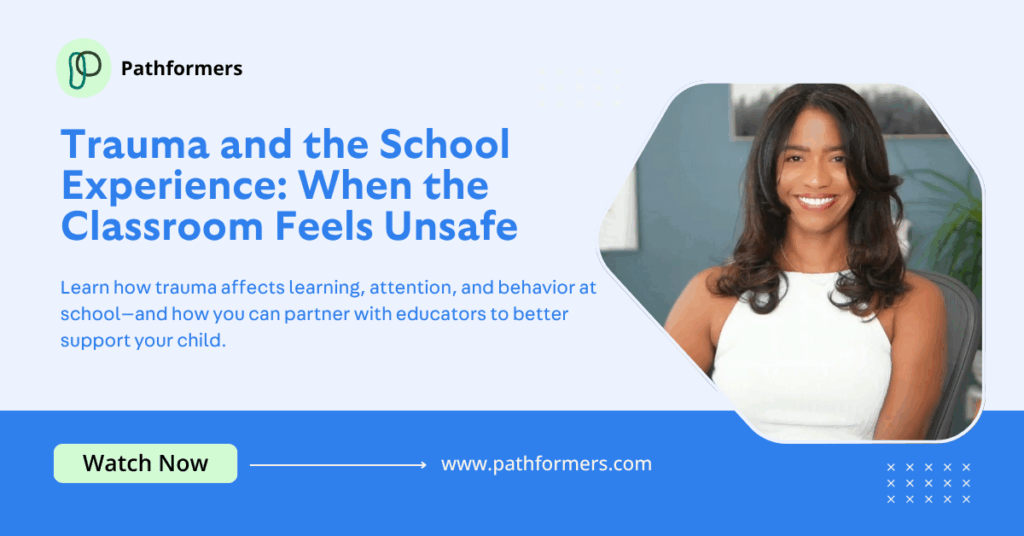In school, trauma often looks like defiance, inattention, or anxiety—but these behaviors are frequently misunderstood. This video explores how trauma disrupts a child’s ability to focus, feel safe, and build relationships in academic settings. You’ll learn how everyday school experiences can act as triggers, and what you can do to help your child feel more secure. We’ll also cover ways to partner with teachers and counselors, so your child receives the support they need to succeed.
Trauma and the School Experience: When the Classroom Feels Unsafe
Common Pain Points
Lorem ipsum dolor sit amet, consectetur adipiscing elit, sed do eiusmod tempor incididunt.
Misinterpreted Behaviors at School
Parents are often told their child is being defiant, distracted, or disruptive—when trauma may actually be the underlying issue.
Triggers Hidden in the School Environment
Seemingly routine aspects of school—like timed tests, transitions, or peer conflict—can trigger intense emotional reactions that go unnoticed or unaddressed.
Difficulty Advocating Effectively
Parents may struggle to explain their child’s needs to educators in a way that garners understanding and collaboration instead of blame.
Module Benefits
Lorem ipsum dolor sit amet, consectetur adipiscing elit, sed do eiusmod tempor incididunt.
Clarity on How Trauma Affects Learning
Gain a clearer understanding of how trauma disrupts focus, memory, behavior, and emotional regulation in school settings.
Tools to Advocate With Confidence
Learn language and strategies to help teachers and staff recognize trauma-related challenges and respond with compassion and structure.
Practical Support Strategies
Discover actionable ways to help your child feel safer and more supported in both academic and home environments.
Help Steer Your Child’s Development
Subscribe to our newsletter for exclusive video updates, expert parenting strategies, and the latest insights in child development and mental health.

